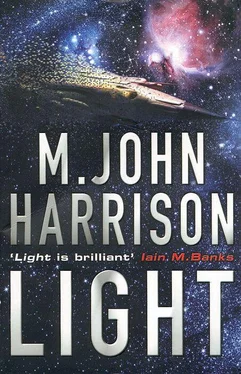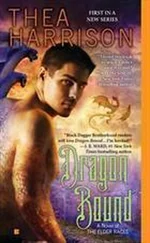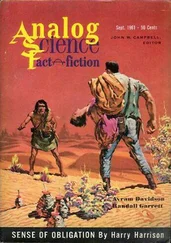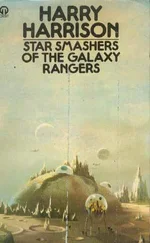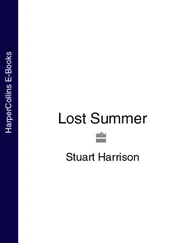'Yes you do,' he said, taking things out to show her. 'Look! All Day Breakfast!'
'You eat it,' she said.
He put the bag down next to her on the bench and took her by the shoulders. He knew that if he said the right thing she would prophesy. 'Listen,' he assured her, as urgently as he knew how, 'I know what you know. Do you see?'
'What do you want? I'm frightened of you.'
Kearney laughed.
'I'm the one frightened,' he said. 'Look, have this. Have these.'
The woman glanced at the sandwiches in his hands, then looked over her left shoulder as if she had seen someone she knew.
'I don't want it. I don't want them.' She strained to keep her head turned away from him. 'I want to go now.'
'What do you see?' he insisted.
'Nothing.'
'What do you see?'
'Something coming down. Fire coming down.'
'What fire?'
'Let me go.'
'What fire is that?'
'Let me go, now. Let me go.'
Kearney let her go and walked away. Aged eighteen, he had dreamed of himself at the end of a life like hers. He was reeling and staggering down sc me alley, full of revelation like a disease. He was old and regretful, but for years something had been combusting its way from the centre of him towards the outer edge, where it now burst uncontrollably from his fingertips, from his eyes, his mouth, his sex, setting his clothes on fire. Later he had seen how unlikely this was. Whatever he might be, he wasn't mad, or alcoholic, or even unlucky. Looking back into Soho Square, he watched the schizophrenics passing his sandwiches from hand to hand, peeling them apart to examine the filling. He had stirred them like soup. Who knew what might come to the surface? In principle, he felt sorry for them, even amiable. The praxis of it was bleaker. They were as disappointing as children. You saw light in their eyes, but it was the ignis fatuus. In the end, they knew less than Brian Tate, and he knew nothing at all.
Valentine Sprake, who claimed to know as much as Kearney, perhaps more, wasn't at the Lymph Club; no one had seen him there for a month. Eyeing the yellowed walls, the afternoon drinkers, the TV above the bar, Kearney bought a drink and wondered where he should look next. Outside, the afternoon had turned to rain, the streets were full of people talking into mobile phones. Knowing that he would be forced, sooner or later, to face an empty apartment on his own, he sighed with impatience, turned upthe collar of his jacket, and went home. There, ill at ease but worn out by what he thought of as the emotional demands of Brian Tate, Anna Kearney and the woman in Soho Square, he turned on all the lights and fell asleep in an armchair.
'Your cousins are coming,' Kearney's mother told him.
He was eight. He was so excited he ran away as soon as they arrived, off across the fields behind the house and through a strip of woodland, until he came to a pond or shallow lake surrounded by willows. It was his favourite place. No one was ever there. In winter, brown reeds emerged from the thin white cat-ice at its margins; in summer, insects buzzed among the willows. Kearney stood for a long time, listening to the diminishing cries of the other children. As soon as he was sure they wouldn't follow him, a kind of hypnotic tranquillity came over him. He pulled his shorts down and stood with his legs apart in the sun, looking down at himself. Someone at school had shown him how to rub it. It got big but he couldn't make it do anything else. Eventually he grew bored and climbed out along a cracked willow trunk. He lay there in the shade, looking down into the water, which teemed with tiny real fishes.
He could never face other children. They excited him too much. He could never face his cousins. Two or three years later, he would invent the house he called 'Gorselands', sometimes 'Heathlands', where his dreams of them, prurient yet somehow transfiguring, could be worked out in a landscape without threat.
At Gorselands it would always be full summer. From the road, people would see only trees, thick with ivy, a few yards of mossy driveway, the nameplate on the old wooden gate. Every afternoon, the pale, scarcely teenaged girls his cousins had become would squat in the warm sun-speckled gloom-their grubby feet slightly apart, their scratched knees and bundled-up skirts close to their chests- rubbing quickly and deftly at the stretched white fabric between their legs, while Michael Kearney watched them from the trees, aching inside his thick underpants and grey school shorts.
Sensing him there, they would look up suddenly, at a loss!
Whatever drove him like this to the waste ground of life, had, by the age of eight, already made Kearney vulnerable to the attentions of the Shrander. It swam with the little fishes in the shadow of the willow, just as it had sorted the stones on the beach when he was two. It informed every landscape. Its attentions had begun with dreams in which he walked on the green flat surface of canal water, or felt something horrible inhabiting a pile of Lego bricks. Dragons were expressed as the smoke from engines, while the mechanical parts of the engines themselves turned over with a kind of nauseous oily slowness, and Kearney woke to find a rubber thing soaking in the bathroom sink.
The Shrander was in all of that.
FIVE
Uncle Zip the Tailor
Much of the halo is burnt-out stuff, litter from the galaxy's early evolution. Young suns are at a premium, but you can find them. Still running on hydrogen, they welcome the human visitor with an easy warmth, like the mythic hostelries of Ancient Earth. Two days later, the White Cat popped out next to one of them, switched off her dynaflow drivers, and parked herself demurely above its fourth planet, which had been named, in honour of its generous facilities, Motel Splendido.
Motel Splendido was as old, in terms of human habitation, as any other rock on that quarter of the Beach. It had a tidy climate, oceans, and air no one had fucked up yet. There were spaceports on both its continents, some of them public, others less so. It had seen its share of expeditions, fitted out, kitted up and despatched under the deracinating glare of the Kefahuchi Tract, which roared across the night sky like an aurora. It had seen, and still saw, its share of heroes. Gold diggers of 2400 AD, they risked everything on a throw of the dice. They thought of themselves as scientists, they thought of themselves as investigators, but they were really thieves, speculators, intellectual cowboys. Theirs was the heritage of science as it had denned itself four hundred years before. They were beachcombers. They went out one morning with their lives all washed up and returned in the evening corporate CEOs heavy with patents: that was the typical trajectory on Motel Splendido: that was the direction of things. As a result it was a good planet for money. One or two puzzling artifacts lay quarantined in its deserts, which had themselves not been deserts until the escape forty years before of a two-million-year-old gene-patching programme someone had picked up on a derelict less than two lights along the Beach. That had been the big discovery of its generation.
Big discoveries were the thing on Motel Splendido. Every day, in any bar, you could hear about the latest one. Someone had found something among all that alien junk which would turn physics, or cosmology, or the universe itself, on its head. But the real secrets, the long secrets, were in the Tract if they were anywhere, and no one had ever returned from there.
No one ever would.
Most people came to Motel Splendido to make their fortune, or their name; Seria Mau Genlicher came to find a clue. She came to make a deal with Uncle Zip the tailor. She talked to him by fetch, from the parking orbit, but not before the shadow operators had tried to persuade her to go down to the surface in person.
Читать дальше
